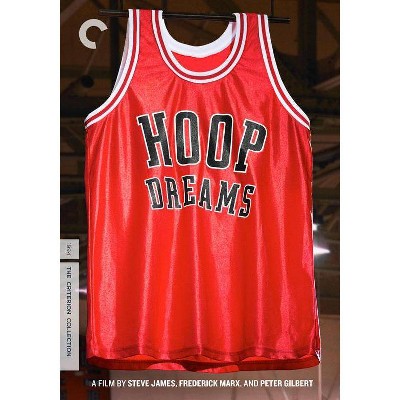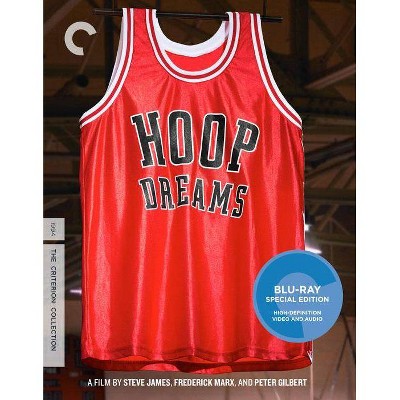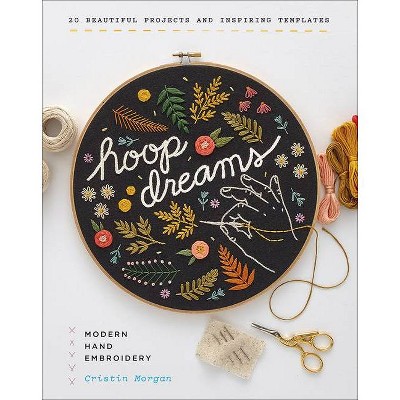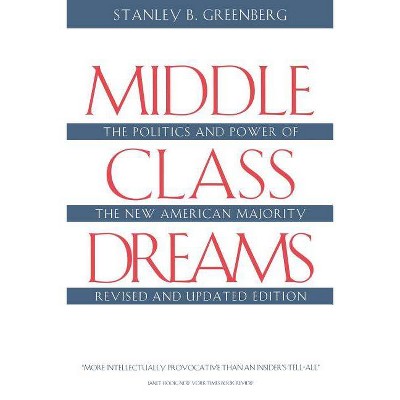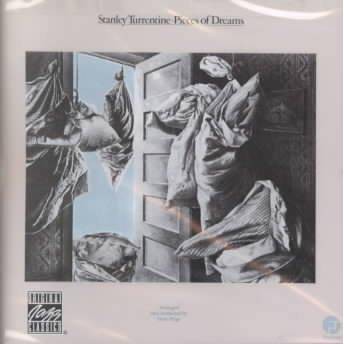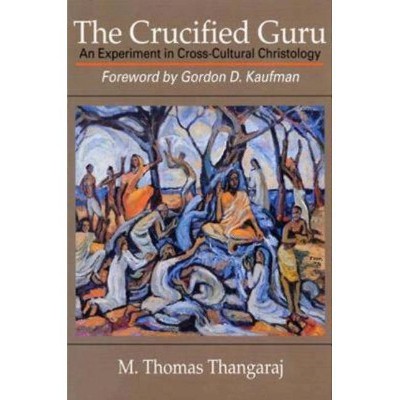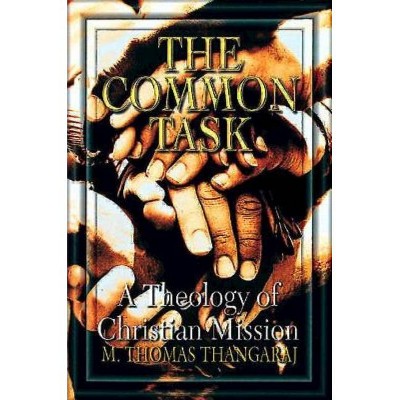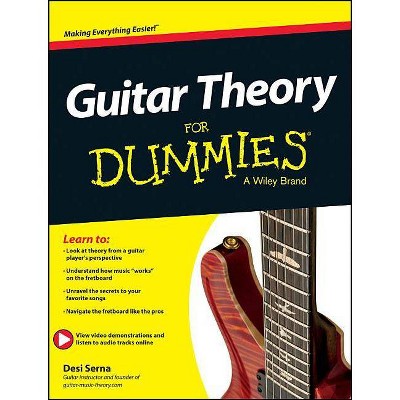Desi Hoop Dreams - by Stanley I Thangaraj (Paperback)
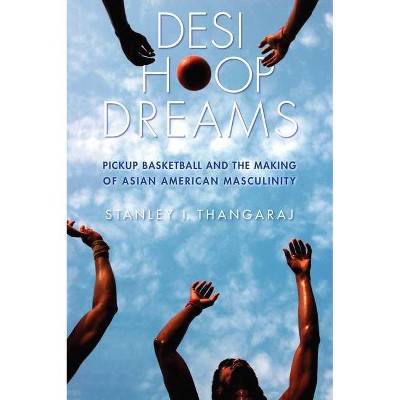
Similar Products
Products of same category from the store
AllProduct info
<p/><br></br><p><b> Book Synopsis </b></p></br></br><p>South Asian American men are not usually depicted as ideal American men. They struggle against popular representations as either threatening terrorists or geeky, effeminate computer geniuses. To combat such stereotypes, some use sports as a means of performing a distinctly American masculinity. Desi Hoop Dreams focuses on South Asian-only basketball leagues common in most major U.S. and Canadian cities, to show that basketball, for these South Asian American players is not simply a whimsical hobby, but a means to navigate and express their identities in 21st century America.</p><p>The participation of young men in basketball is one platform among many for performing South Asian American identity. South Asian-only leagues and tournaments become spaces in which to negotiate the relationships between masculinity, race, and nation. When faced with stereotypes that portray them as effeminate, players perform sporting feats on the court to represent themselves as athletic. And though they draw on black cultural styles, they carefully set themselves off from African American players, who are deemed "too aggressive." Accordingly, the same categories of their own marginalization--masculinity, race, class, and sexuality--are those through which South Asian American men exclude women, queer masculinities, and working-class masculinities, along with other racialized masculinities, in their effort to lay claim to cultural citizenship.</p><p>One of the first works on masculinity formation and sport participation in South Asian American communities, Desi Hoop Dreams focuses on an American popular sport to analyze the dilemma of belonging within South Asian America in particular and in the U.S. in general.</p><p/><br></br><p><b> Review Quotes </b></p></br></br><br>At the heart of Asian American masculinity may be this question: How can the so-called model minority ever effectively man up? Thangaraj pushes this conversation forward. He demonstrates with penetrating detail that some of the boldest attempts to do so fail because of the discriminatory practices within them.--Pawan Dhingra "Sociological Forum"<br><br>[]Desi Hoop Dreams offers an important ethnographic exploration of the making of masculinity among South Asian American men from brown bodies to brown-out spacesThe authors use of multiple analytical lenses to examine the making of masculinity across social locations also sets an excellent example of ethnographic research.--Hoching Jiang "Gender & Society"<br><br>[I]t is interesting and worthwhileto learn how desi men handle the general problem of masculinity and the specific problem of being brown in what is still principally a black-and-white society.--Jack David Eller "Anthropology Review Database"<br><br>A must-read book for students and scholars of Asian American studies.-- "Journal of Asian American Studies"<br><br>Based on over four years of research among the South Asian Basketball leagues in Atlanta, Desi Hoop Dreamsis an insightful exploration into the processes of identity formation for young South Asian men growing up in suburban America.-- "Anthropological Quarterly"<br><br>Desi Hoop Dreams provides rich, detailed descriptions of basketball in South Asian American ('Desi') communities in the US and, in a few instances, Canada.--Audrey Giles "Annals of Leisure Research"<br><br>In this compelling, experiential ethnography of South Asian American men and sports, Thangaraj dribbles and shoots hoops with young men, exploring the performance of racialized masculinities on the basketball court that challenges the mainstream imagination of South Asian American bodies. This pioneering book is a refreshingly new window into questions of race, sexuality, and class that critically examines what it means to 'man up' and claim normative American masculinities while enacting multiple, yet sometimes exclusionary, identities. There is much to be learned from this thoughtful, nuanced, and frank analysis of the politics of sport and masculinity.--Sunaina Maira, author of Desis in the House: Indian American Youth Culture in New York City<br><br>InDesi Hoop Dreams, Thangaraj effectively captures the complexity and nuance of the sport, masculinity, and race in America from the frequently overlooked perspective of South Asian American men.--Reuben May "American Journal of Sociology"<br><br>Offers rich ethnographic insight into the social lives of South Asian American men and contributes significant observations about the South Asian Experience in the USA.-- "Social Anthropology"<br><br>Stanley Thangarajs argument in Desi Hoop Dreams hinges on the point that South Asian American men do basketball for a specific purpose: to claim identities as American citizens through their racialized masculinity as performed in and around basketball[Highly] valuable in this book are these complex class, educational, and racial factors that Thangaraj uses to explain the nonhomogeneity of South Asian American masculinity.--Joanne Hill "Journal of American Studies"<br><br>Thangaraj complicates discourses on race by moving the conversation away from the overdetermined black-white binaries that are exclusionary while also demonstrating the intimate connection the binary has to Desi mens engagement with multiple racialized bodies . . . Thangarajs work not only serves as an important resource for sport and South Asian American life but also contributes to conversations on race, gender, and sexuality . . . Desi Hoop Dreams is an important read for undergraduates, graduate students, and scholars of sport, postcolonial, gender, and race studies.--Gabby Yearwood "American Anthropologist"<br><br>Thangarajs well-rounded accounts of men, their ideas, social groups, activities, and encounters reflect American socialization, assimilation, and the perpetuation of otheringOne is left more educated by having read ThangarajsDesi Hoop Dreamsbecause of the impressive intersectional ethnographic work produced through inquisitiveness, candid reporting, and knowledge of useful and relevant literaturesDesi Hoop Dreamsjumps fully into current debates regarding immigration and Americanness.--Scott Brooks "Contemporary Sociology"<br><br>ThangarajsDesi Hoop Dreamsis an important contribution to the undertheorized area of South Asian masculinity studies, and is ideal reading for courses related to gender, South Asia, and diaspora studies. It also enriches our understanding of the intersection of race and gender within mainstream sporting institutions, and is useful to the growing subgenres of the sociology and anthropology of sports.--Harjant S. Gill "Anthropological Quarterly"<br><br>The book is a revealing read that shatters many stereotypes of South Asian immigrants in the US and Canada and takes a scholarly look at how a subsection of thedesipopulation found solace in basketball at both the grassroots level as well as the national stage in Indo-Pak Tournaments.--Karan Madhok "Hoopistani.com"<br><br>This close reading of the meanings and embodied practices of competitive basketball playing by Desi young men in Atlanta illuminates how minoritized Americans negotiate racial, class and national belonging. Through vivid ethnography, Thangaraj supplements the critiques of emasculation that abound in Asian American studies, focusing instead on performances of athletic swagger, manning up, and homosociality. . . . A fresh narrative of racial crossing and masculinity making.--Louisa Schein, Rutgers University<br>
Price History
Cheapest price in the interval: 28.49 on November 8, 2021
Most expensive price in the interval: 28.49 on December 20, 2021
Price Archive shows prices from various stores, lets you see history and find the cheapest. There is no actual sale on the website. For all support, inquiry and suggestion messagescommunication@pricearchive.us
